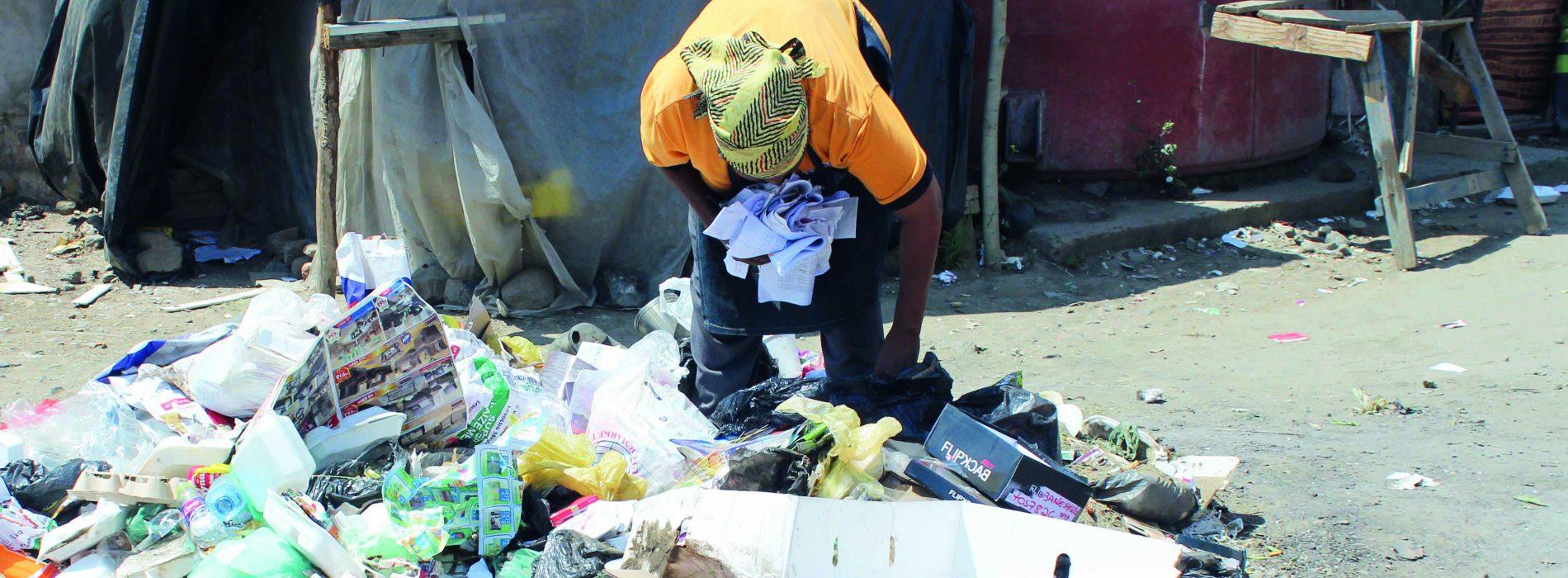Africa-Press – Lesotho. WE are under attack by plastic pollution,” Maseru mayor Nthabeleng Ntšasa decried last Friday. “The city is besieged,” she said, with a clear sense of alarm.
Ntšasa was talking about the rampant littering throughout the city. “Plastics are the main problem… they are scattered all over,” she said at the unveiling of a project on sustainable plastic life-cycle management.
The project is a collaboration between the United Nations Development Programme (UNDP) and the Ministry of Tourism, Environment and Culture. It is meant to complement the efforts of the government in encouraging behaviour change for responsible production and consumption patterns.
Ntšasa said keeping the city clean is one of the council’s top priorities, but the problem of plastic waste is refusing to go away. “Take a moment and peer around, you will see how dependent we are on plastic. It has become an inescapable part of our lives,” Ntšasa said.
The bulk of the plastic waste finds its way into the environment, contaminating land, water and the entire food chain, she said, adding that the council has embarked on public awareness programmes to sensitise people about keeping a clean environment.
Betty Wabunoha, the UNDP resident representative, said the project should help build partnerships and advocacy on plastic life-cycle management. “The project will promote behavioural change for responsible production, use and disposal of plastic in the country,” said Wabunoha.
The UNDP has also supported the implementation of innovative partnerships for a solid waste management project, she said. The objective of that project was to support the development of financially sustainable and innovative public private partnerships for basic delivery of sustainable solid waste management services.
These include waste collection, street sweeping and recycling within the city of Maseru. A key problem for the disposal of plastic within the solid waste management cycle is, unlike food and paper waste which is biodegradable, plastics cannot be permanently eliminated from the environment when left to degrade in landfills.
Plastics take hundreds to thousands of years to break down into smaller fragments. In an effort to curb the rampant plastic pollution, the private sector, with help from the UNDP, is pushing for a law that will require shops to pay a levy for issuing plastics bags to their customers.
The private sector also wants all plastic products levied. The UNDP late last month said it aimed to work with people, government and the private sector to re-envision development for the 21st century through the Lesotho Accelerator Labs (a global project).
The UN agency said the project is aimed at creating new capabilities for decision-makers to explore and grow portfolios of mutually-reinforcing solutions against environmental degradation.
It also seeks to deal with the economic impact of plastic bags, with a focus on strengthening partnerships on sustainable plastic life-cycle management.
The UNDP Deputy Resident Representative, Nessie Golakai-Gould, said the agency recognises the private sector as a key partner to the achievement of the universally adopted Sustainable Development Goals (SDGs).
“The role of the private sector in the production and use of plastics cannot be overemphasised therefore making it even more critical in the re-engineering of new relationships with plastics,” she said.
Golakai-Gould warned that “we all cannot ignore the terrible trajectory of plastic life on our environment,” adding that “the aim here is not to ban plastics but to encourage a more sustainable use of plastic.
”
The Deputy Principal Secretary for the Ministry of Tourism, Environment and Culture, Moliehi Ntene, said that the inappropriate management of plastic shopping bag waste in Lesotho is becoming a serious environmental issue.
“The inefficiency of solid waste collection system, lack of legislation and inappropriate waste disposal infrastructure amongst others have significantly contributed to pollution,” said Ntene.
Ntene said he hoped the partnership with the UNDP would spur the country into action, noting that the project is “at the heart of the Environmental Department”.
“The ministry is hopeful that the solid waste management will soon become history as the ministry is working hard to ensure regulation of plastic,” Ntene said.
Representative of retail chain, Clicks, ’Maneo Nyakane, said many clients tend to overlook the eco-friendly bags and complain when the store charges them for plastic bags.
Samuel Mphana from Pick n Pay said he hoped the project would not remain a paper tiger. “The same project was proposed back in 2003 to no avail, regardless of the underlying issues. I hope this time it will bring results,” Mphana said.
A representative of the Chinese Association in Lesotho, Barry Gu, said his EasyGas company situated in Semphetenyane in Maseru manufactures eco-friendly bags for grocery store customers.
Barry said the bags waste naturally within two years, while plastics take hundreds of years to decompose. “The government should subsidise eco-bags that will waste naturally in two years, unlike plastic that lasts 200 years,” Barry said.
He added that unlike neighbouring countries, Lesotho imports eco-friendly shopping bags that are sold expensively, yet there are factories with over 200 employees that can make similar bags locally.
For More News And Analysis About Lesotho Follow Africa-Press






